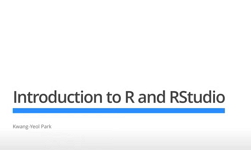Objectives This study aims to analyze international research trends on misinformation in education using the R programming language. Methods Five hundred fourteen high-quality papers (SCI, SSCI, AHCI) were extracted from the Web of Science database. A...
http://chineseinput.net/에서 pinyin(병음)방식으로 중국어를 변환할 수 있습니다.
변환된 중국어를 복사하여 사용하시면 됩니다.
- 中文 을 입력하시려면 zhongwen을 입력하시고 space를누르시면됩니다.
- 北京 을 입력하시려면 beijing을 입력하시고 space를 누르시면 됩니다.

R 프로그램을 이용한 허위 정보에 관한 교육 분야 국제 연구 동향 분석 = Analyzing International Research Trends on Misinformation in Education Using R Programming
한글로보기부가정보
다국어 초록 (Multilingual Abstract)
Methods Five hundred fourteen high-quality papers (SCI, SSCI, AHCI) were extracted from the Web of Science database. A big data analysis and literature review were conducted on these papers, focusing on their sources, keywords, and core research. The study was carried out in four stages: data collection, data cleaning, data analysis, and literature review.
Results Research on misinformation in education has rapidly increased in recent years. The number of papers published in journals related to educational psychology and medical education was high, while those published in journals related to subject education were relatively few. The keywords related to misinformation appeared in the order of Misinformation, Fake News, and Disinformation. Keywords related to competencies for addressing misinformation appeared in the order of Media Literacy and Digital Literacy. Core research in this field included studies on specific strategies for identifying misinformation, characteristics of students in identifying misinformation, origins of the false memory effect, expansion of the concept of media literacy, and attempts to extend terminology from a science education perspective.
Conclusions In Korea, there is a need to diversify international cooperation networks and pay more attention to international-level research on misinformation. Additionally, conducting more active research on dealing with misinformation from various perspectives, including specific perspectives in various subject education fields, is necessary.
Objectives This study aims to analyze international research trends on misinformation in education using the R programming language.
Methods Five hundred fourteen high-quality papers (SCI, SSCI, AHCI) were extracted from the Web of Science database. A big data analysis and literature review were conducted on these papers, focusing on their sources, keywords, and core research. The study was carried out in four stages: data collection, data cleaning, data analysis, and literature review.
Results Research on misinformation in education has rapidly increased in recent years. The number of papers published in journals related to educational psychology and medical education was high, while those published in journals related to subject education were relatively few. The keywords related to misinformation appeared in the order of Misinformation, Fake News, and Disinformation. Keywords related to competencies for addressing misinformation appeared in the order of Media Literacy and Digital Literacy. Core research in this field included studies on specific strategies for identifying misinformation, characteristics of students in identifying misinformation, origins of the false memory effect, expansion of the concept of media literacy, and attempts to extend terminology from a science education perspective.
Conclusions In Korea, there is a need to diversify international cooperation networks and pay more attention to international-level research on misinformation. Additionally, conducting more active research on dealing with misinformation from various perspectives, including specific perspectives in various subject education fields, is necessary.
동일학술지(권/호) 다른 논문
-
- 학습자중심교과교육학회
- 박은경
- 2024
- KCI등재
-
키워드 네트워크 분석을 통한 대학생 몰입 관련 연구동향 분석
- 학습자중심교과교육학회
- 문경연
- 2024
- KCI등재
-
초기 성인 여성의 부적응적 자기초점주의와 우울의 관계: 인지적 유연성의 매개효과
- 학습자중심교과교육학회
- 이지영
- 2024
- KCI등재
-
생성 AI ChatGPT의 활용이 한국어 쓰기의 자기주도학습 능력 및 쓰기 능력에 미치는 영향: 중국인 고급 학습자를 대상으로
- 학습자중심교과교육학회
- 욱아경
- 2024
- KCI등재




 스콜라
스콜라






